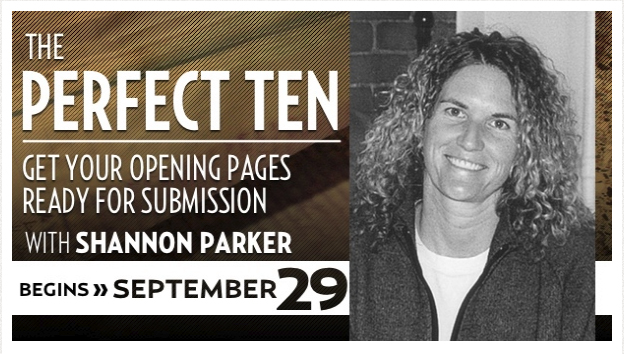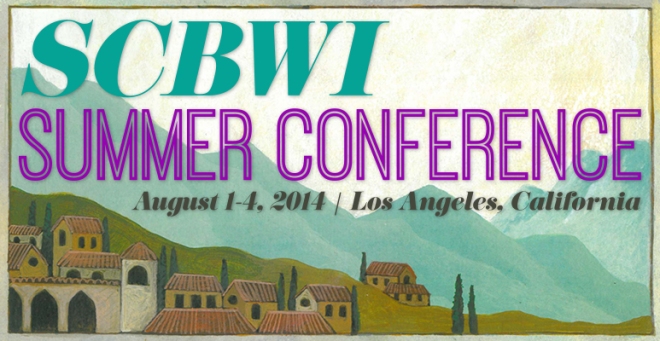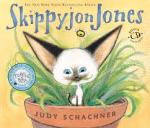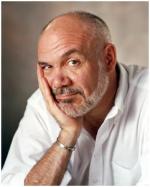
Agents Ginger Clark (Curtis Brown), Josh Adams (Adams Literary), Lisa Grubka (Foundry), and Ken Wright (Writer’s House), all spoke at the 2010 SCBWI LA Conferences. They discussed what they are looking for, the state of the market, and how the rights landscape is changing. The following are my notes from the event:
MODERATOR: Introduce yourself, your agency, and a little about the marketplace from your perspective.
GINGER: I’ve worked for Curtis Brown for Five years. I represent middle grade and young adult novels. I also represent British rights to the Curtis Brown children’s List. It’s good to have an agent that can think globally for you. I have found that editors are looking for middle grade books, middle grade series or one shots. There is really a neglected audience in the 8-12 year old area. On the YA end I like fantasy and paranormal books. I look for the more unusual stuff. Angels were really big in Bolognia this year, but personally I am looking for any book with mermaids or sirens in it! Distopia is coming in and getting big. I prefer email queries, but will still accept snail mail as well.
KEN: Writer’s house is the largest and best known house for Children’s publishing. We have 3 or 4 agents that deal exclusively with children’s books. We have some good franchises at Writer’s House including Twilight, and The Baby Sitters Club. I was an editor at Scholastic before becoming an agent. YA literary fiction is selling right now, as is middle grade series. There is also a small phenomenon to take note of which is very young middle grade fiction. But we aren’t sure what that is yet. Picture books are really tough to sell right now. My personal specialty is nonfiction books.
JOSH: My wife and I run our boutique agency ourselves. We started our agency in 2004, and we represent the children’s book market exclusively. In our opinion the state of the market is strong. We’ve seen a resurgence in hiring editors, and more acquisitions lately. The market is bouncing back. When writing I would stress that you strive for something that is timeless, that’s really what we are looking for. Timeless will always be timely. We look to manage careers over time. We only take submission through our website, and we do get about 8000 submissions a year.
LISA: I’ve been at Foundry for about two years. Before that I was at Williams and Morris for six years. I represent both children’s books and adult books. I see that there is a trend in YA and MG for books that have an international focus, and that is also a personal interest of mine. I like reality grounded projects, I like to feel as if I could be the character. Dystopian novels are hot right now. But I’m always looking for something that is voice driven with strong characters and humor. Adult crossover novels are also good.
 MODERATOR: Can you explain how foreign rights and other markets work?
MODERATOR: Can you explain how foreign rights and other markets work?
GINGER: An agent tries to keep as many subsidiary rights as they possibly can. This is so we can sell those rights over seas, etc. It is important for an author to try and not make their book super American, as it won’t sell well in another country. For example American Football or baseball are very hard books to sell internationally. Most agents will partner with an agent in another country to sell those rights.
KEN: It’s subjective on the other side of the ocean. You never know what they will buy.
JOSH: I agree. You want an agent that will market your book for you overseas. The publisher will probably take a percentage if they are marketing those rights overseas for you. It is better to have your agent do it for you so you get more of the pie. We have co-agents overseas, and we want them to aggressively market you. Though it can be hard to sell books in places like Scandinavia and Europe if your book is not a series.
LISA: You want an agent to have an eye on how to sell your book. Do you speak a foreign language? Tell your agent! Then you can do a book tour in that country.
KEN: If the publisher controls the rights, then your agent should still be talking with them on what they are doing with those rights.
MODERATOR: What rights should authors seek to obtain?
JOSH: All of them!
GINGER: There is a lot of arguing about audio rights, and there is plenty of discussion about multi-media and enhanced media rights. Boiler plate rights is when we’ve settle on one clause or term for all media. And that can be a problem. Film people don’t like to see that the publisher has the media rights, because there is some overlap and this can be very tricky. Media is more interactive with picture books.
KEN: We’ve started inserting aversion language into our contracts. Time limits for example…if they haven’t used said rights yet then they revert back to the author, etc.
JOSH: More publishers are looking for audio rights when they don’t have audio programs. We see rights grabs with the higher the advances. Don’t grant commercial and film rights to publishers.
LISA: There is so much new technology that we don’t know what the next thing will be. “Winter is coming and we all want to be in on it.” Publishers have been doing presentations for agents to show them the possibilities. But we are still waiting to see what’s really going to happen.
MODERATOR: Is a simultaneous book and e-release a good thing?
JOSH: The talk in Hollywood is all about convergence. What platform do you want to see it on NOW! Traditional books are still selling better, and e-commerce is only a fraction of the other sales. So the question is what’s fair for the author with these rights?
KEN: Three years later we often look back at rights and see what was used.
GINGER: 25% of net for e-book is the royalty right now. We are hoping this will change. Andrew Wyle launched his own e-rights publishing house (he’s an agent). Will this help or hurt?
 MODERATOR: With so many new platforms how does this affect your opinion of self publishing?
MODERATOR: With so many new platforms how does this affect your opinion of self publishing?
GINGER: There’s a question right now with people like Andrew Wyle starting his own publishing company. Can we (as agents) ethically function as a packager for our clients? Do we do direct to self publishing? What’s okay or appropriate for an agent to do? We may see the cannon of ethics changing in the future and it may change our jobs as agents.
JOSH: Do you see self publishing as a way to break into traditional publishing? Everyone is looking for a new way to break into publishing. Maybe…
LISA: Most people who self publish are struggling to get the numbers. This is a grey zone and I’m not sure how an agent fits into that picture.
MODERATOR: How do you assess the business, conglomerates, and the opportunities right now?
LISA: It’s really hard for mid-list authors right now. Lots of imprints are looking for new authors. Amazon’s power grows daily and the publishers have to listen to them. How do you allocate money, balance budgets, etc.? An agent may need to help an author get a publicist if they are a mid-list client.
JOSH: It can be easier to sell a debut novel than say a third book. This is because there is no track record for that author. The PNL has more unknown variables. Some authors struggle in one genre and were trying to stretch them into a new place. Quality fiction will always find a home. But there are more challenges today.
KEN: The adult book market focuses on big books. But the editors are looking for great new voices.
GINGER: We are heading into a golden age for children’s books (particularly YA). People are seeing the importance and power of children’s books. I’m seeing the snobby side of the industry start to take note. Children’s books are paying people’s salaries!
MODERATOR: What services do you provide your clients? And what is your client/agent relationship?
JOSH: We are all about teamwork! Communication, and making sure you are on the same page in the relationship. Authors are looking for editorial agents, but agents aren’t here to replace the editor. I’m not going to re-decorate the house. But I will help you stage your book. It’s like real-estate.
BEN: Sometimes I’m your shrink. I’m your eyes and ears to the market. I’m the bad cop to your good cop.
LISA: I do edit quite a bit. I want to give the project the best opportunities. Communication is important. How will we work well together depends. Do you need hand holding, etc. I will help to manage your career, and I take my job very seriously.
JOSH: I like to strategize together. Always tell me what you are working on next, so we can think about the big picture. We may need to put things in the drawer depending on where we are taking your career. I want to manage your career to help maximize the earnings of your career.
GINGER: I am not your therapist, best friend, or your mom! This is a professional relationship. I won’t talk on the phone with you for two hours to shoot the shit.
JOSH: Some authors email or phone all the time. Some I don’t talk to for a month. We are here 24/7 for you. And occasionally I can be your shrink for you, or at least suggest one. We are your rock. We want to help instill confidence in you so that you can do your best. Our job is to help you gain that confidence.
Audience Question: Can you address Asian Markets?
GINGER: Manga is its own world. It hit its peak and what’s here has been translated. Non-fiction adult books do well in Asia. Asia does not have the vampire virus. What’s doing well in Europe doesn’t quite sell well in Asia.
Audience Question: Can you comment on the state of non-fiction books in the market?
KEN: It’s been a great year for non-fiction! 2009 was a banner year for non-fiction. There’s been a ground swell of interest in non-fiction. Nonfiction doesn’t sell as well in the trade market, but it’s great in the educational market.
Audience Question: Is there a good season to submit to an agent?
KEN: Summer is a good time. We are trying to get things lined up for the Fall.
JOSH: When the work is ready that’s when you should submit! Some people mention the “lazy days of summer” but I don’t know what that’s about, I’m always busy!
KEN: Agents submit less to publishers in the summer because they are often on vacation.
GINGER: If an agent goes to Bologna, that’s not a good time to query.
LISA: There are spikes around certain times of the year.
 Ken Wright was an editor and publisher for 20 years, most recently at scholastic, where he was an editorial director. Ken joined Writer’s House in 2007 as an agent, specializing in children’s literature. Ken’s clients have been the recipients of many awards including the Caldecott, Newbery, and Printz Awards.
Ken Wright was an editor and publisher for 20 years, most recently at scholastic, where he was an editorial director. Ken joined Writer’s House in 2007 as an agent, specializing in children’s literature. Ken’s clients have been the recipients of many awards including the Caldecott, Newbery, and Printz Awards.
 Ginger Clark has been a literary agent with Curtis Brown LTD since 2005. She represents science fiction, fantasy, paranormal romance, literary horror, and young adult and middle grade fiction. In addition to representing her own clients she also represents British rights for the agency’s children’s list. She previously worked at Writer’s House for six years as an assistant.
Ginger Clark has been a literary agent with Curtis Brown LTD since 2005. She represents science fiction, fantasy, paranormal romance, literary horror, and young adult and middle grade fiction. In addition to representing her own clients she also represents British rights for the agency’s children’s list. She previously worked at Writer’s House for six years as an assistant.
 Josh Adams, together with his wife Tracey, runs Adams Literary, a boutique agency exclusively dedicated to children’s book authors and artists. A graduate of Dartmouth College and Columbia Business School, Josh spent years in publishing and media before bringing his editorial and business backgrounds together as a literary agent.
Josh Adams, together with his wife Tracey, runs Adams Literary, a boutique agency exclusively dedicated to children’s book authors and artists. A graduate of Dartmouth College and Columbia Business School, Josh spent years in publishing and media before bringing his editorial and business backgrounds together as a literary agent.
 Lisa Grubka spent six years at the William Morris Agency before joining Foundry in 2008, and represents both fiction (literary, young adult, and women’s) and non-fiction (pop-culture, food, and narrative). Lisa has worked with a broad variety of authors, from debut novelists to Food Network stars. She take a very hands on approach in working with her authors, and is a thorough editor, ensuring to the best possible proposal or manuscript.
Lisa Grubka spent six years at the William Morris Agency before joining Foundry in 2008, and represents both fiction (literary, young adult, and women’s) and non-fiction (pop-culture, food, and narrative). Lisa has worked with a broad variety of authors, from debut novelists to Food Network stars. She take a very hands on approach in working with her authors, and is a thorough editor, ensuring to the best possible proposal or manuscript.
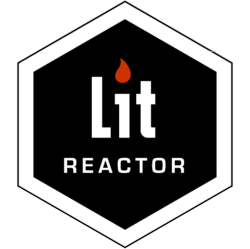 Guest Post by Shannon M. Parker
Guest Post by Shannon M. Parker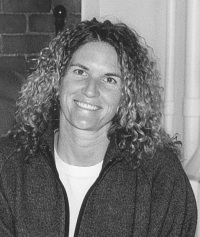 Shannon M. Parker is the author of the YA novel Crushing, due out in Spring, 2016 from Simon Pulse, a division of Simon & Schuster. Her short stories have been published and won awards, but she’s happiest when writing novels. She is a proud member of SCBWI, and a passionate administrator for The Sweet Sixteens, a group of remarkable children’s authors debuting in 2016.
Shannon M. Parker is the author of the YA novel Crushing, due out in Spring, 2016 from Simon Pulse, a division of Simon & Schuster. Her short stories have been published and won awards, but she’s happiest when writing novels. She is a proud member of SCBWI, and a passionate administrator for The Sweet Sixteens, a group of remarkable children’s authors debuting in 2016.
